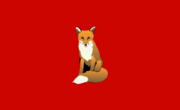Communist Party of Ayacucho: Difference between revisions
Jump to navigation
Jump to search
No edit summary |
No edit summary |
||
| Line 11: | Line 11: | ||
| lang4 = Mandarin | | lang4 = Mandarin | ||
| name_lang4 = 阿亞庫喬人民聯邦共產黨 | | name_lang4 = 阿亞庫喬人民聯邦共產黨 | ||
| logo = File: | | logo = File:Logo of the Communist Party of Nepal (Unified Marxist–Leninist).png | ||
| logo_size = 164px | | logo_size = 164px | ||
| logo_upright = | | logo_upright = | ||
Revision as of 19:34, 11 October 2022
Communist Party of the People's Commonwealth of Ayacucho अयकुछो पीपुल्स कमनवेल्थको कम्युनिस्ट पार्टी | |
|---|---|
| File:Logo of the Communist Party of Nepal (Unified Marxist–Leninist).png | |
| Bhojpuri name | अयाकुचो के पीपुल्स कॉमनवेल्थ के कम्युनिस्ट पार्टी |
| Maithili name | कम्युनिस्ट पार्टी के जन राष्ट्रमंडल के अयाकुचोको |
| Dzongkha name | ་གུང་ཁྲན་ཏང ཨཡཅུཆོ |
| Mandarin name | 阿亞庫喬人民聯邦共產黨 |
| Leader | Jayant Pun |
| President | Ashok Devkota |
| Chairperson | Manjula Baidhya |
| General Secretary | Choedon Dhanacktsang |
| First Secretary | Dolkar Kyidtodpa |
| Secretary | Dwarika Dhamarkatteel |
| Founder | Bhuchung Karpo |
| Founded | December 26, 1948 |
| Legalised | January 1, 1949 |
| Student wing | Comrade Diego Desandi Students' Organization |
| Youth wing | Communist Pioneers Youth Organization |
| Women's wing | Female Comrades for the Revolution |
| Membership (2019) | 28,265,419 |
| Ideology | |
| Political position | Far-left |
| Colors | |
| Seats in the Workers' Assembly | 406 / 406
|
| Flag of the Communist Party of Ayacucho | |
 | |
The Communist Party of the People's Commonwealth of Ayacucho (Nepali: अयाकुचोको पीपुल्स कमनवेल्थको कम्युनिस्ट पार्टी ayaakucho ko pipuls kmnvelthko kmyunist paarti) is a Marxist-Leninist-Maoist political party in Ayacucho, and since January 1, 1949 the sole legal party of the country. It was founded on December 26, 1948 just a little months after independence, by independentist leader Bhuchung Karpo, a Sherpa-origin and humble teacher who struggled against British Empire and led the country to independence and communism. In the early 1950s it was led by a dynasty known as Desandi household, whose third and fourth generation is living today and governing the country.